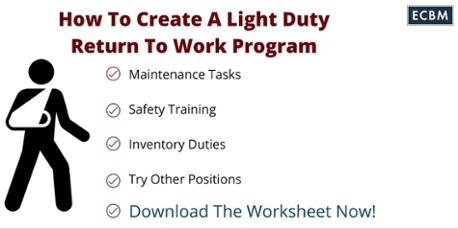
Workers compensation is supposed to protect employers from lawsuits brought by their employees. In exchange for a system of a no fault liability for on the job injuries, employers secure freedom from negligence lawsuits brought by employees that might yield much higher payouts. This protection, however, is not absolute. Like with any rule, there are exceptions.
Workers' Compensation To Improve Relationship Between Employee and Employer
Workers compensation was originally set up to be the exclusive remedy for all employment related injuries to workers. That means that it was meant to bar all tort actions between employer and employee. However, a number of exceptions were gradually carved out of exclusive remedy provisions. One major exception that has expanded substantially over time is the Dual Capacity Doctrine.
Dual Capacity Doctrine
The Dual Capacity Doctrine holds that an employee can sue an employer under negligence for a workplace injury when the employer causes the injury in some capacity other than as an employer. The doctrine originated in a California case where a nurse was injured by the malpractice of a doctor that happened to be her coworker. The California Supreme Court allowed the nurse to sue for medical practice despite the fact that her injuries were sustained on the job. The obligation of the employer as a medical facility and her coworker as a doctor to exercise the professional level of care in providing medical treatment existed independently of the employer-employee-coworker relationships.
Holding An Employee To The Same Standards
The general principle of the dual capacity doctrine is that employees should not be barred from seeking recovery for injuries resulting from a breach of the employer’s duty to the general public. It would be unfair to the employee and against public policy to prevent a lawsuit solely on the grounds of the employee’s status.
Other Industries And Their Liability
There are several categories of dual capacity cases. Providers of Medical Services as highlighted in the case above is a big one. Product liability cases provide another large batch of dual capacity cases. If an employer manufactures a tool that the employee uses to perform his job and that tool malfunctions and causes an injury, the employee may bring a products liability lawsuit against the manufacturer. The final big category is vendor relationships. Where an employee regularly purchases products from the employer that the employer sells to the general public and those products cause injury, some courts have held that the vendor relationship imposes obligations separate and apart from the obligations of employment. The defining case in this category involves a worker injured by cafeteria food.
Results Vary By State
Ultimately, cases brought under the dual capacity doctrine are highly fact and jurisdiction specific. The types of cases allowed vary significantly from state to state, and the exact interplay between the two capacities of the employer will matter a lot when it comes time to determine if a negligence case will be allowed.
Key Takeaway For Businesses
If such a case is brought against your business, the employer’s liability section of your workers compensation policy should respond to the suit. But being aware of the key exceptions to major rules such as the exclusive remedy provision is a good way of monitoring your risks so that you can keep your safety record intact and your premiums low.





